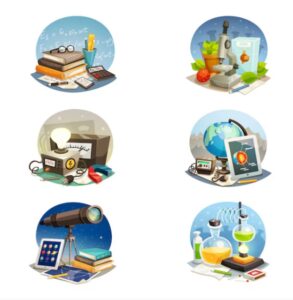 Physics
Physics
Physics is the study of matter, energy, and the interactions between them. This field seeks to uncover the fundamental principles governing the universe. But what is physics exactly? At its core, it explores the nature of the physical universe through rigorous experimentation and theoretical analysis. This pursuit of knowledge can be categorized into classical mechanics, electromagnetism, thermodynamics, and more advanced topics like quantum physics.
 Quantum physics
Quantum physics
Quantum physics, also known as quantum mechanics, revolutionizes our understanding of the microscopic world. It examines phenomena that occur at the atomic and subatomic levels. Unlike classical physics, which describes the macroscopic world, it delves into the strange and often counterintuitive behaviors of particles. Concepts such as wave-particle duality and quantum entanglement challenge our conventional notions of reality.
 Mastering physics
Mastering physics
Mastering physics involves more than just grasping theoretical concepts. It requires a deep comprehension of both fundamental principles and their applications. students and professionals engage with complex problems that often necessitate advanced mathematical techniques. Mastery in this means being able to apply these concepts to solve real-world problems and to contribute to advancements in technology and science.
 Positive physics
Positive physics
Positive physics, while not a standard term, could be understood as the application of physics principles to achieve beneficial outcomes. This approach focuses on harnessing it to address global challenges, improve technologies, and enhance quality of life. For instance, positive physics might involve using knowledge of electromagnetism to develop cleaner energy sources or employing principles of thermodynamics to create more efficient engines.
The study of it begins with fundamental questions: What are the laws that govern the natural world? How can we predict and manipulate physical phenomena? In answering these questions, it provides the groundwork for various scientific and technological advancements. For example, the principles of electromagnetism underpin much of modern electronics, while quantum mechanics is crucial for developing technologies like semiconductors and lasers.
It also serves as the foundation for other scientific disciplines. Chemistry, for example, relies on concepts from quantum to understand atomic interactions and chemical reactions. Biology benefits from it through biophysics, which applies physicl principles to biological systems. This interdisciplinary approach highlights the integral role of it in broadening our understanding of the natural world.
 Educational approaches
Educational approaches
Educational approaches to mastering physics vary. Traditional methods often involve classroom instruction and textbook learning. However, modern advancements in education offer innovative methods for learning it. Online courses, interactive simulations, and advanced laboratories provide immersive experiences. These tools help students grasp complex concepts and develop practical skills in it.
In addition to educational tools, research and experimentation are vital for advancing knowledge in it. Experimental it involves conducting experiments to test theories and discover new phenomena. The scientific method plays a crucial role here, guiding researchers through hypothesis formulation, experimentation, and analysis. This process continually refines our understanding of the physical universe.
Its research is not limited to theoretical or experimental domains alone. Applied physics is a field that bridges the gap between theory and practical application. Applied physicists work on projects that solve real-world problems, often collaborating with engineers and industry professionals. Their work can lead to innovations in technology and improvements in everyday life.
Visit webs
Advancements in physics
In recent years, advancements have led to significant technological breakthroughs. Quantum computing, for instance, promises to revolutionize information processing by leveraging the principles of quantum mechanics. Similarly, advancements in materials science, driven by its research, have resulted in the development of new materials with extraordinary properties.
It also influences our daily lives in subtle ways. Technologies such as GPS, medical imaging, and telecommunications rely on principles of physics to function. For instance, GPS systems use principles of relativity to provide accurate location data, while medical imaging technologies like MRI rely on principles of nuclear physics.
Mastering it provides a robust foundation for various career paths. Physicists can work in academia, research institutions, or industry. Their expertise is valuable in sectors ranging from aerospace to healthcare. Additionally, the problem-solving skills developed through studying it are highly transferable and sought after in many fields.
Overall, the study of it is both a journey and a destination. It begins with understanding basic concepts and evolves into exploring the complexities of the universe. Quantum physics challenges our perceptions and opens doors to new possibilities, while mastering it equips individuals with tools to make meaningful contributions. Positive physics, though not a conventional term, represents the application of physics for societal benefits.
As we continue to explore the universe and uncover its mysteries, the role of it remains central. From theoretical explorations to practical applications, it drives innovation and enhances our understanding of the world. Whether through quantum mechanics or applied research, it holds the key to unlocking new potentials and addressing global challenges.

1 thought on “Physics”